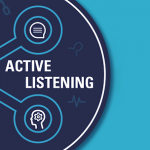Today i’ll be talking about Anger, how to recognize and Manage It. Anger is your natural response to perceived threats and it’s directly attributable to our survival as a specie. This response by itself is not unhealthy but when sustained over a period or uncontrolled, it could become so.
Anger to your emotions is simply what a headache is to your body. It simply informs you of an existing concern. – Temple Obike
YOU CONTROL ANGER NOT SUPPRESS IT
I discovered at the onset of my career that many individuals fall victim to Anger because rather than learn to control it, they try to suppress it. Suppressing your anger can damage you emotionally and psychologically. The best approach to managing your anger is to understand why you get angry and then manage that emotion. This is an important aspect of self control.
Anger at injustice and an infringement on someone’s rights is a good way to get angry and this is how to use this emotion productively.
The man who is angry at the right things and with the right people, and, further, as he ought when he ought, and as long as he ought is praised – Aristotle
The key to anger is to learn to manage it, like any other emotion, so that it can be channelled into appropriate action.
Anger management skills will help you understand the real reasons behind your expression of anger and then express it in a healthier and less confrontational manner. If i was asked to summarise this, it’s simply about you unlearning ineffective coping mechanisms and re-learning more positive ways to deal with the problems and frustrations that lead to anger.
A number of reputale research materials have linked uncontrolled anger to emotional and physical health issues. The first thing i need you to understand is that every anger bout has a trigger. At this point, please indulge me as i describe what a trigger is for the benefit of those who may not know.
Available on Podcast:
WHAT ARE TRIGGERS?
A trigger in the mental health context simply refers to something that affects your emotional state, often significantly, by causing extreme overwhelm or distress. A trigger affects your ability to remain present in the moment. It may bring up specific thought patterns or influence your behavior.
It is important that we all identify what out triggers are and then learn how to manage it. Financial concerns, stressful periods, family issues etc are all triggers for anger but for others depression, feelings of inadequacy or addictions could become triggers. Most of the mental health conditions out there have anger as a known symptom.
ANGER TYPES & THEIR EXPRESSION
I have seen people express anger in various ways but have also been able to link totally unrelated behaviour to Anger as sessions proceeded. These are the various kinds of Anger and their expressions in humans.
- External or Outward. This is the most expressed form of anger which we are accustomed to on a daily basis. We see it in our relational lives and it’s usually characterized by physical or verbal abuse, cursing, breaking things, shouting and throwing things at the anger subject.
- Internal or Inward. This anger is usually directed at ones self. This usually occurs in individuals who harbour a measure of disappointment for themselves in some areas of their life. Inward anger is usually characterized by self-harm, negative self-talk, isolation, denying one’s self of joy or daily needs such as water, food and a social life.
- Passive. Many individuals are caught between openly displaying their anger or internalizing it. So they simply deflect it by making the anger passive in nature. Passivity could include making hurtful remarks, giving the silent treatment, acute sarcasm and sulking.
HOW TO IDENTIFY IF AN ANGER CONCERN EXISTS
Going with the above mentioned types of anger and their expression. I’d like to state some ways which you could identify a potential anger issue in you or someone else.
- You regret your actions after saying or doing certain things
- Neither You or anyone else can calm you down when you are angry
- You often battle with angry thoughts
- Your anger affects your relationship with Parents, partner, colleagues and authority figures in your life
- You get verbal or physical with the anger subjects
ANGER SYMPTOMS TO WATCH OUT FOR
Anger is responsible for many emotional and phisically damaging symptoms in our lives. These symptoms can be experienced normally but an individual who has unresolved anger issues will experience them in a highly potent manner.
Physical Symptoms and Expression
Our hearts, muscles and brain are adversely affected by anger. Anger causes a spike in your body’s testosterone level while drastically decreasing your cortisol level. Once this occurs in the body, the physical signs include tension in the muscles, headaches in some, an increase in heart-rate, a tingling sensation and increase in blood pressure.
Emotional Symptoms and Expressions
Anger has a lot of emotional accompanyments as well. When you get angry, notice that there seems to be heightened emotional instability. Due to the fact that the physical symptoms mentioned come with a lot of hormonal imbalance at the time of anger, your mood also becomes affected. So before you get angry, amidst an anger bout or afterwards, these are some of the emotional symptoms you may experience. Feeling overwhelmed, anxiety, high irritability, frustration, rage, feelings of stress and guilt.
HOW TO MANAGE YOUR ANGER
Everyone always believes they have their anger under control until something resultant of this condition occurs. Anger if not controlled could negatively affect your life, relationships and more. If you notice this trend, consider speaking to a mental health professional near you who could help you determine if it’s an underlying mental health condition causing your anger issues. If there is, they could also help you get the requisite treatment.
Find below various ways that have worked for me on treating anger-related cases.
Relaxation Techniques: There are several relaxation techniques that can help you control your anger. This is one that works like magic.
Breathing Excercise: When you begin feeling tense, my advice to you is to isolate yourself for 15 minutes and then concentrate on relaxing/steadying your breathing. Simply concentrating on this activity alone rechannels your energy and balances out the hormones internally.
- Inhale and exhale deeply 3 or 4 times in a row.
- Count slowly to four as you inhale.
- Count slowly to four as you exhale.
- Focus on feeling the air move in and out of your lungs.
- Concentrate and feel your ribs slowly rise and fall as you repeat the exercise.
- Stop and revert to normal breathing if you start to feel dizzy at any time.
Depending on where you find yourself, leaving for 15 minutes may not be feasible. So what you do is this;
- Inhale deeply 1 time and hold it for 3 seconds .
- Exhale deeply and repeat the inhalation 2 more times.
- Focus on feeling the air move in and out of your lungs while being present in your environment.
- Stop and revert to normal breathing if you start to feel dizzy at any time.
Distract Yourself With Your Physical Fellings:
One way to dilute acute pangs of anger is by trying to understand how you feel. Notice the change in your breathing, notice how your heart rate has increased and that slight trembling of your body. Taking note of these changes distracts you from the problem at hand which caused your anger in the first place.
The Count :
The moment you introduce logic to emotions, you WIN. This simple anger management trick works because it interferes with your emotions and introduces numbers (which requires logic). That brief spell of counting prevents you from taking actions you might regret. It also provides you with more room to figure out the best response to the situation.
Exercise:
Anger gets your muscles tense. When an individual gets angry, there is a sudden tenseness that envelopes the muscles. Exercising as an anger management technique is most effective when the subject of your anger is not in the same physical space as you. This gives you time to compose yourself both psychologically and emotionally before confrontation. This helps you reverse the physical anger signs.
Other ways of managing anger could involve anger management classes taken in person/by phone/online, anger management exercises and by joining support groups.
CONCLUSION
I would want to conclude this article with the following words. Never forget that anger by itself is a normal emotion. Not being able to control it is what should be the the real concern. Never suppress your anger because whatever you suppress could destroy you from within if not properly contained.
If you notice that you cannot control your anger, kindly reach out to a professional mental health expert, psychotherapist or counselor within your area to help you explore and work through your anger. This will help you understand if there is any underlying mental health condition that could be feeding your anger. Anger management help does not imply that you are crazy so get up today and seek out help if you need it.
As always, i hope this piece on “Anger, How to Recognize and Manage it” helped someone. The more you understand why you get angry, you’d learn how to get it under control. Knowledge they say is power but i say in it’s right application lies real mastery.
Written by Obike Temple.
Temple Obike is a licensed marriage and family therapist, speaker, author and psychotherapist who has counseled over one thousand, two hundred clients comprising of couples, individuals, abuse victims (substance, physical, emotional and sexual) and grief-stricken clients. With over 70,000 in-counseling minutes (1,000+ hours) accrued in practice. He runs his private psychotherapy & counseling practice out of Lagos, Nigeria and has counseling centers in Abuja and Port-Harcourt. His practice also provides options for both online and on-site services.
His private practice has positively empowered lives through his online counseling, podcasts, free advisory services and free online materials. Readership of his articles also receive a growing number of visitors alongside subscriptions to his email newsletter at templeobike.com. His passion for empowering and uncovering the secrets to lifelong marriages and personal development led to his new book titled “Soul Bodega” available on amazon and across other online and traditional stores.
Never give up on yourself! You are a journey happening through various destinations.
Follow us on Facebook, Instagram, LinkedIn, and visit our website for more info!



2 Comments
Nuhu .K
I got your newsletter and it directed me to this post. Is there anyone i can speak with?
Admin
Dear Nuhu, Please call us on +2348109055475.